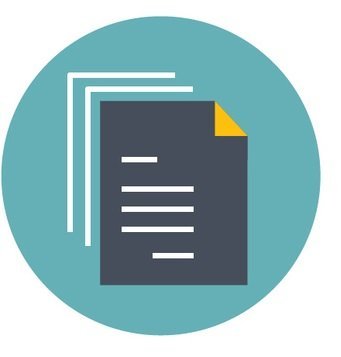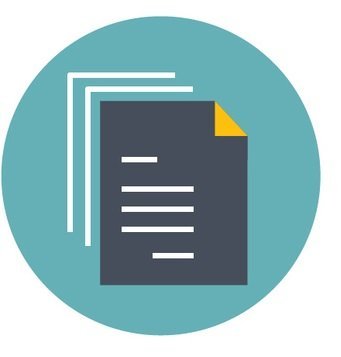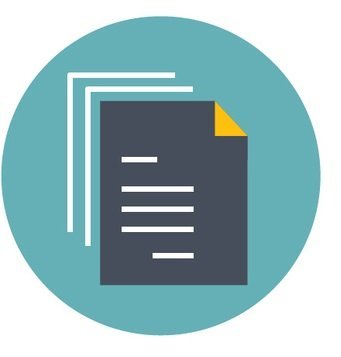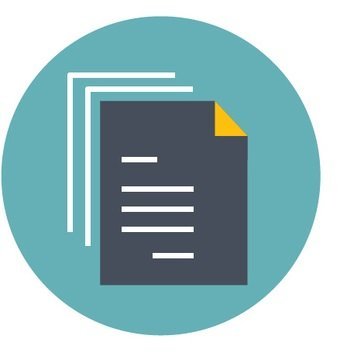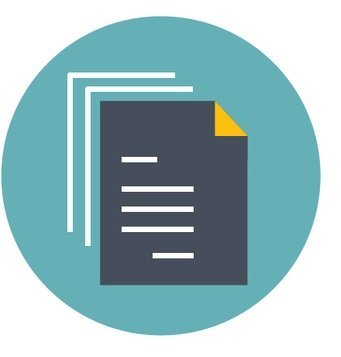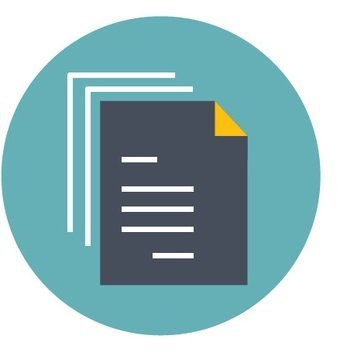Leaderboard
Popular Content
Showing content with the highest reputation since 04/07/19 in all areas
-

Why you DO NOT need to sound like a native English speaker!
Fabi Severo and 3 others reacted to Minoo for a blog entry
These days, I see too many English language students wanting to sound like a native English speaker. They feel they need to speak with a specific native English accent while using many idiomatic expressions. This is a hugely ambitious goal for someone who was not exposed to the English language before they were two or three years old. In my own case, I started learning English at the age of six, and although I’ve been speaking and teaching English every day for the past 37 years, I still don’t sound like a native English speaker. So, if you know someone who has achieved this goal as an adult learner, then they’re a genius! For most of us, however, this is a rather pointless and disempowering goal. Why is this a pointless goal? I can think of four reasons: a) When it comes to communicating with others, accent is irrelevant. Whether we sound British, American, Italian, or Chinese, what really matters is how easily others understand us. b) Good speakers and writers avoid using too many idiomatic expressions and complex structures. They keep their language short and simple. c) English grammar is even difficult for natives to master. As a proofreader, I regularly correct and improve native speakers’ poorly written English. d) Out of the 1.5 billion English speakers worldwide, only 25% are native. If, for the sake of facilitating communication, one group had to change the way they spoke, it would logically be the natives. Why is no-one asking them to lose their regional accents and limit their vocabulary to the 5000 words that are sufficient to communicate in most situations? Why is it a disempowering goal? Our voice and the way we speak is a fundamental part of our personal and cultural identity. If we feel that we must change this important aspect of our identity in order to succeed in life, we’re really telling ourselves: ‘I’m not good enough! I must become someone else, or pretend that I am someone else.’ This negative self-image can generate feelings of lack, inferiority, and envy that disempower us. Even if we work with the most brilliant voice coach to change our accent and memorise the whole of the English idioms dictionary, this ‘I’m not good enough’ belief will result in failure. Loss of self-belief and self-confidence is a huge price to pay for a goal that, as I argued above, is totally pointless. What’s a better goal? Instead of wanting to sound like someone else when we speak English, let’s focus our efforts on sounding like our unique self who speaks with a clear pronunciation and uses simple and correct language. Just imagine for a moment how much less stressful and more motivating this goal can be! Also, put yourself in the shoes of the people you interact with in English, both native and non-native. Don’t you think they love the fact that they can understand you easily and interact with you comfortably? Or, do you imagine that they think less of you because you don’t speak like someone from Melbourne, Dublin, or Texas? I’d love to read your thoughts and stories in the comments section.4 points -

Live Lesson 2 - Slides & Replay
Oskar Gutierrez and 2 others reacted to Minoo for a file
Version 1.0.0
76 downloads
Here are the slides for Lesson 2 on: - Present Perfect Continuous (I have been doing) - Present Perfect (I have done) - Action & State Verbs Download the attached slides and review the lesson. You can also watch my LIVE presentation of the lesson here. Next step: Do the Oral quiz.Free3 points -

Live Lesson 1 - Slides & Replay
madhusudhanbabu and 2 others reacted to Minoo for a file
Version 1.0.0
120 downloads
Here are the slides for Lesson 1 on three Present tenses: - Present Simple (I do) - Present Continuous (I am doing) - Present Perfect Continuous (I have been doing) Download the attached slides and review the lesson. You can also watch my LIVE presentation of the lesson here. (12 minutes) Next step: Do the Oral quiz.Free3 points -
future simple questions
Minoo and 2 others reacted to suresh s for a topic
"I am finished" and "I have finished" have similar meanings, but they are not exactly the same. "I am finished" describes a current state or condition and It emphasizes the result or outcome of the action rather than the action itself. whereas "I have finished" describes a completed action in the past, It emphasizes the action that was completed rather than the result or outcome.3 points -

Why you DO NOT need to sound like a native English speaker!
Fabi Severo and 2 others reacted to Omar Karakhan for a blog entry
Hello Head Tutor, Minoo. I totally agree with you.The main thing is that people understand us, and we understand them. Keep it simple! Regards, Omar3 points -

Essay writing tips tutorial
Roman_R and 2 others reacted to Minoo for a topic
Dear all, This is to let you know that the tutorial has just been released on my YT channel. It will soon be published in the 'tutorial' section of the 'video lessons' on the platform. If you would like to watch it straight away, go to this link: https://youtu.be/mXrqCJ2hvI0 I hope you enjoy it.3 points -
Essay writing tips tutorial
Samuel Ashenafi and 2 others reacted to eddy andrianasolo for a topic
Hello, Thank you for the tips I will try to do that. Eddy3 points -
Tenses Bootcamp - Week 2 - Curriculum & Links to related lessons on your online course
Oskar Gutierrez and one other reacted to Nadia Bojilova,Danlex EOOD for a file
2 points -

Oral drills 2 - Exercise 2
Oskar Gutierrez and one other reacted to Minoo for a file
Version 1.0.0
55 downloads
There are 23 exercises in this file (Exercise 2). - Listen to an answer. - Formulate your question. - Repeat the correct question. How to use the drills effectively: - You can read the answers first in the PDF copy before you start the oral drills, but don't write/type the questions down. - Make sure that when you're doing the drills, you're not looking at the PDF transcript anymore. - If necessary, the first time, stop the recording to give yourself time to formulate your question. - Repeat the drills as many times as necessary (over the next days for 20-30 minutes a day) until you can formulate your question without hesitation in the silent gap provided. RECOMMENDATION: When you have done both Oral Drills 1 and 2 a few times, circle back to Steps 1, 2 & 3: Review Lesson > Oral Quiz > Listen to the passage. Notice how much easier the lesson, the quiz, and understanding the passage are now compared to a few days ago.Free2 points -

Tenses Bootcamp - Week 1 - Curriculum & Links to related lessons on your online course
Oskar Gutierrez and one other reacted to Minoo for a file
Version 1.0.0
97 downloads
In week 1, we will be reviewing and practising: Present simple (I do) Present Continuous (I am doing) Present Perfect Continuous (I have been doing) Here are the related lessons in your online course (for additional examples and written exercises if you feel you need them): https://app.anglo-link.com/pedia/elementary/grammar/i_do_im_doing/?content=study https://app.anglo-link.com/pedia/intermediate/grammar/im_doing_ive_been_doing/?content=study You don't need to download the attached file: It's the same 'Curriculum' document which you have already downloaded in the 'Introduction & Information' folder.Free2 points -
Grammar (B1+): Past Tenses
BranislavNS and one other reacted to Duris for a file
A very big thank you to you Minoo for having sent me this lesson. As usual, your explanations are cristal clear, you need a gold medal being the best English teacher in the world. I'm serious. I studied this lesson thoroughly and I made only two mistakes at the quiz. That's too many but I am going to do this quiz again.2 points -

Differences Angry-Annoyed-Upset ?
JesusArgentina and one other reacted to Minoo for a topic
Hello Jesus, All three adjectives can be used, but I would use 'angry' because it's the strongest and matches the word 'demand' better. The other two are weaker: annoyed = slightly angry upset = unhappy, disappointed2 points -

How acted Irregular Plural in the sentence?
Doina Becheru and one other reacted to Minoo for a topic
Hello Jesus, Thank you for your question, which we covered in yesterday's LIVE Q&A session. To recap: When 'people' is the plural of 'person', you must use a plural verb: These people are .... When 'people' is a synonym for 'ethnic group', then it is a countable noun, and you can say 'a people' (+ singular verb) and 'peoples' (+ plural verb). This second meaning is not commonly used. So, consider 'people' to be plural 99% of the time.2 points -

Word order: Where to put 'again'?
Burak75 and one other reacted to Minoo for a topic
The ‘WHAT’ part includes verb + direct object + indirect object, and we must keep these three elements together. In this case, the direct object is the question and the indirect object is for you. That’s why ‘again’ (an adverb) has come after ‘for you’. Here’s another example from Collins Dictionary: I started to feel good about myself again. You may come across examples where the indirect object has been separated from the verb, but make sure you never separate the direct object from the verb.2 points -

Live workshop
Burak75 and one other reacted to Minoo for a topic
Hello Mathias, An excellent question! Here's a description of each type of workshop: Sunday workshops: They involve listening to and speaking with your peers, and typing sentences in the chat box in reply to my questions. One week: Grammar Review & Practice I'm attaching the worksheet from our last session on 15th January. You receive this before the session + the link to the online lesson that we will be revising. You can revise that lesson and do the exercises before the session, or you can come unprepared to test yourself and revise the lesson after the session. In the first part of the session, you partner up with one of your peers in a breakout room, and you do the exercises together. So, in this part you're revising a topic while discussing it with another student. In the second part of the session, I take the whole group through the exercises one by one. Here, you will be listening mainly to me, and occasionally answering a question from me in the chat box. The following week: Conversation Practice (occasionally changed to pronunciation practice) I'm attaching the worksheet from our last session on 22nd January. You can prepare your questions and/or your answers before the session, or you can come unprepared if you want to speak spontaneously. In the first part of the session, you partner up with one of your peers in a breakout room. You ask each other the questions and make a note of each other's answers. In the second part of the session, you share the information you've gathered from your partner with the whole group, speaking for 1-2 minutes. Your partner shares the information he/she has gathered from you with the whole group. NEW Saturday Q&A sessions starting 18th March 2023: hey involve mainly listening to me answering questions posted in the Forum, but you can ask questions live as well. You can post any questions you have in the Q&A Forum in four categories: Grammar, Pronunciation, Vocabulary, and General. You can answer your peers' questions in the Forum (the best way to reinforce your own learning). I choose the best questions from different categories every week and answer them in detail in our Saturday Q&A session. We end each session with a quiz to see how well you remember the different points covered. Don't hesitate to continue this thread if you have any follow-up questions on what I've explained above. 47 Conversation Cars - 22 January 23.pdf 46 Negative words -15 January 23.pdf2 points -

VIDEO DICTIONARY - THE FARM PART2
Samuel Ashenafi and one other reacted to Rodolfo Marttos for a topic
Hi friends! This is my Video Dictionary – The Farm Part2. I’ll try to publish one vídeo every week. I hope that you appreciate! Thank you! ? THE_FARM2_v2.mp42 points -

VIDEO DICTIONARY - BABY THINGS
Samuel Ashenafi and one other reacted to Rodolfo Marttos for a topic
Hi friends! This is my Video Dictionary – Baby Things. I’ll try to publish one vídeo every week. I hope that you appreciate! Thank you! VIDEO_BABY.mp42 points -

Conditional
rasha j and one other reacted to Minoo for a topic
Hello Rasha, Thank you very much for your support. I'm glad you like my website. You raise a very interesting point, and you're right that occasionally we may see 'will' in the 'if' clause. That's usually when we're using 'will' to show someone's willingness to do / not to something: A: I will not speak to him. B: O.k. If you won't (are not willing to) speak to him, I will do it. In your sentence, too, you can replace 'won't by 'be willing to': If you are not willing to have something done on time, be clear about it.2 points -

How to build vocabulary ?
Vijaymit and one other reacted to Minoo for a topic
Thank you for your contribution, Pier. Indeed, it is great to use movies and songs that you like to learn new expressions. I would like to add a couple of suggestions: Choose movies you have already seen in your mother tongue and really liked, and watch them three or four times, first with English subtitles, and then two or three more times without subtitles with one or two weeks between each viewing. You will be amazed at how much more you understand each time even without subtitles. Remember that if you have the subtitles on all the time, your listening comprehension does not improve as much, so limit the subtitles only to the first time you watch a movie. Same goes for your favourite songs. Learn the lyrics (with some translation if necessary), and then listen to them again and again, and sing along with them.2 points -

Welcome to your brand new site!
alexzapad and one other reacted to Minoo for a topic
Thank you very much for your positive feedback. We're delighted that you like the site, and hope you will enjoy using it.2 points -

Used to & Be/Get used to
_Maxim_ reacted to Minoo for a file
Version 1.0.0
24 downloads
These exercises improve your understanding and usage of the following structures in your Study Plan: Used to & Be used to Watch my latest LIVE LESSON on this subject. Watch the recording of Part 2 of our LIVE WORKSHOP going through these exercises. In our LIVE Grammar Workshops: 1. You work through the exercises with one of your peers (breakout room). 2. We go through the exercises all together (main room). 3. I ask you to create your own examples of the structure(s) we have reviewed (chat box). This is the fastest and most effective way of fully understanding and activating grammatical structures. So, I encourage you to join the live sessions when you can.Free1 point -

Articles (a, an, the)
Arturas reacted to Minoo for a file
Version 1.0.0
26 downloads
These exercises improve your understanding and usage of the following structures in your Study Plan: a, an, the Watch my latest LIVE LESSON on this subject. Watch the second part of our latest WORKSHOP where we go through these exercises. In our LIVE Grammar Workshops: 1. You work through the exercises with one of your peers (breakout room). 2. We go through the exercises all together (main room). 3. I ask you to create your own examples of the structure(s) we have reviewed (chat box). This is the fastest and most effective way of fully understanding and activating grammatical structures. So, I encourage you to join the live sessions when you can.Free1 point -
English Tenses Bootcamp: Curriculum & Reviews
Minoo reacted to Dev Mudila for a file
I absolutely loved this course! Having taken several English tense courses before, I can confidently say that none of them explained the practical use cases as effectively as Minoo did in this boot camp. Her clear explanations and engaging teaching style made complex concepts easy to understand. I highly recommend this course to learners of all levels! Dev, USA1 point -
English Tenses Bootcamp: Curriculum & Reviews
Minoo reacted to jamie for a file
1 point -

Oral quiz 7
Arturas reacted to Minoo for a file
Version 1.0.0
49 downloads
Here's the quiz we did in the LIVE lesson. You can read the PDF first to familiarise yourself with the questions, but don't write or type the answers down. Repeat it orally (without looking at the PDF transcript) several times until you can answer each question without hesitation in the silent gap provided. Next step: Transcription exerciseFree1 point -

Oral drills 6 - Exercise 2
Arturas reacted to Minoo for a file
Version 1.0.0
45 downloads
There are 25 exercises in this file (Exercise 2). - Listen to an answer. - Formulate your question. - Repeat the correct question. How to use the drills effectively: - You can read the answers first in the PDF copy before you start the oral drills, but don't write/type the questions down. - Make sure that when you're doing the drills, you're not looking at the PDF transcript anymore. - If necessary, the first time, stop the recording to give yourself time to formulate your question. - Repeat the drills as many times as necessary (over the next days for 20-30 minutes a day) until you can formulate your question without hesitation in the silent gap provided. - If the exercise is or becomes too easy, increase the playback speed (to no more than x1.5) to increase the challenge. RECOMMENDATION: When you have done both Oral Drills 1 and 2 a few times, circle back to Steps 1, 2 & 3: Review Lesson > Oral Quiz > Listen to the passage. Notice how much easier the lesson, the quiz, and understanding the passage are now compared to a few days ago.Free1 point -

Oral drills 4 - Exercise 2
Arturas reacted to Minoo for a file
Version 1.0.0
40 downloads
There are 27 exercises in this file (Exercise 2). - Listen to an answer. - Formulate your question. - Repeat the correct question. How to use the drills effectively: - You can read the answers first in the PDF copy before you start the oral drills, but don't write/type the questions down. - Make sure that when you're doing the drills, you're not looking at the PDF transcript anymore. - If necessary, the first time, stop the recording to give yourself time to formulate your question. - Repeat the drills as many times as necessary (over the next days for 20-30 minutes a day) until you can formulate your question without hesitation in the silent gap provided. - If the exercise is or becomes too easy, increase the playback speed (to no more than x1.5) to increase the challenge. RECOMMENDATION: When you have done both Oral Drills 1 and 2 a few times, circle back to Steps 1, 2 & 3: Review Lesson > Oral Quiz > Listen to the passage. Notice how much easier the lesson, the quiz, and understanding the passage are now compared to a few days ago.Free1 point -

Tenses Bootcamp - Week 4 - Curriculum & Links to related lessons on your online course
Arturas reacted to Minoo for a file
Version 1.0.0
16 downloads
In week 4, we will be reviewing and practising: Past Continuous (I was doing) Past Perfect (I had done) Past Perfect Continuous (I had been doing) Here are the related lessons in your online course: https://app.anglo-link.com/pedia/intermediate/grammar/i_did_i_was_doing/?content=study https://app.anglo-link.com/pedia/intermediate/grammar/i_did_i_had_done/?content=study https://app.anglo-link.com/pedia/elementary/pronunciation/common_regular_verbs/?content=study https://app.anglo-link.com/pedia/elementary/pronunciation/common_irregular_verbs/ You don't need to download the attached file: It's the same 'Curriculum' document which you have already downloaded in the 'Introduction & Information' folder.Free1 point -

Passage 2 (Transcription exercise)
Arturas reacted to Minoo for a file
Version 1.0.0
61 downloads
Here's the passage for Week 2. Try to transcribe the passage before you look at the transcript. If necessary, reduce the playback speed. How to transcribe: - Listen to the first sentence. - Stop the recording. - Write down what you remember. - Rewind and listen again to the same sentence (if necessary several times) and add any details you'd missed the first time. - Move on to the next sentence and repeat the above steps. This is possibly the most time-consuming of all the exercises in the course, but it's an important exercise to improve your listening skills and pronunciation at the same time as focusing on the use of tenses in context. Once you've written the complete passage out, compare your transcript with the PDF and mark any gaps or mistakes. Then, listen to the passage again, particularly to the parts where you had gaps or mistakes. Next step: Move on to the oral drills.Free1 point -

Oral quiz 1
Arturas reacted to Minoo for a file
1 point -

Linking words of condition
Badia reacted to Minoo for a file
Version 1.0.0
38 downloads
These exercises improve your understanding and usage of the following topic in your Study Plan: Linking words of condition In our LIVE Grammar Workshops: 1. You work through the exercises with one of your peers (breakout room). 2. We go through the exercises all together (main room). 3. I ask you to create your own examples of the structure(s) we have reviewed (chat box). This is the fastest and most effective way of fully understanding and activating grammatical structures. So, I encourage you to join the live sessions when you can. Watch our latest workshop on this topic here.Free1 point -

Easily confused words 1
Leliuss reacted to Minoo for a file
Version 1.0.0
37 downloads
In this lesson, we review some words that are often confused with each other, such as economic and economical, or politics and policy. 1. Download the PDF and read the explanations, and/or watch the live lesson here. 2. Take the quiz to test yourself. In LIVE sessions, we go through the correct answers together after you've done the quiz on your own. This is the fastest and most effective way of fully understanding and activating a topic. So, do try to join the live sessions when you can.Free1 point -

Tenses in Questions
Minoo reacted to Nana85 for a topic
Hello Minioo, thank you so much for your very detailed information to my questions. It helpt me quiet a bit to clear things up for me. I will watch the two lessons you recommended to this topic as well and if I still have questions after that, I will ask you in comming up Video lessons. Thanks again and have a good rest of the week. With best regards Nana1 point -

Too and Two
Doina Becheru reacted to Minoo for a topic
Hello Jesus, Thank you for your question. No, there isn't one single word that can replace 'two too'. But, because they're both pronounced in exactly the same way, and it's phonetically awkward to say 'two too', it's best to use a synonym of 'too' instead: I'd also like two. I'd like two as well.1 point -

as vs like
Doina Becheru reacted to Minoo for a topic
An excellent topic, Elke! I'll put a lesson together on this topic for one of our next Live Q&A sessions.1 point -

Of vs Off
Minoo reacted to Doina Becheru for a topic
Hello Minoo, Please explain to us when to use 'of ' vs 'off'. Thank you!1 point -

How to use your course for optimal results
Matze reacted to Minoo for a topic
Hello and welcome to the course everyone! It's a pleasure to have you onboard! Here are some recommendations on how to make the most of your studies. 1. Where to start Whatever your level is, it would be a good idea to revise all the basics and close any gaps. So start at the first level: Lower Elementary (A2). Use the ‘test’ section of each lesson to check if you have any gaps, and review the recommended sections. When the tests start to get difficult, then study each lesson in detail (Study & Exercise) before taking the test. 2. How long to study each day Try to study 30-60 minutes every day. On the days you have less time, revise a lesson you’ve already done, or just listen to some audio files you’ve downloaded. Revision is really important! If a lesson is challenging you, don't keep repeating it on the same day. Move on and return to it after a few days. 3. How to watch the video lessons Take notes while you watch video lessons or read written explanations. This is really helpful in assimilating the material. For example, you can note down the new words with their English definitions (the less translation, the better) and two example sentences for each structure, one from the lesson and one of your own. 4. How to work on your speaking skills After typing your answer to a written exercise, repeat the recording of the correct answer out loud (not just in your head) several times until you can repeat it easily and without reading it on your screen. The real test of assimilation is when you can repeat it at the same time as the model (shadowing). Also, download the audio files of the online exercises and save them to your mobile device. You can then use these to improve your listening and speaking skills anywhere anytime. 5. Where to find more listening and speaking exercises There are additional listening and speaking exercises in the Daily Challenge section. Some other great things you can do in addition to your online studies: 1. Relaxed listening Every day, watch/listen to something in English for 20-30 minutes. Choose YouTube clips, TED talks, podcasts, or TV series that you like and understand easily, for example a TV series that you’ve already watched in your own language. Just relax and listen; don’t try hard to understand everything. If you don't have time, pair this relaxed listening with another activity, e.g. driving or cooking. Then, once or twice a week, choose something that you love and watch it several times. You can watch it once or twice with English subtitles, and once or twice without subtitles. This will allow you to remember and use new vocabulary and expressions that you hear and read in those clips, talks, or series. If you watch something new every time, only your passive knowledge of vocabulary will increase, but not your active usage. 2. Focused listening & writing Take dictations occasionally. From time to time, use what you have watched or listened to for dictation exercises. You can also use audio books if you have the printed version of the book. Listen and write down a small section (1 or 2 minutes), then check what you’ve written against the subtitles or the page in the book. This is a great exercise to improve many things at the same time: listening, pronunciation, grammar, vocabulary, and spelling. 3. Free writing Keep a diary in English. Once a week, write a few sentences about your week in your diary. You will find that you can gradually write more and better as you progress through your online course. Applying the things you're learning in your own writing will help you to integrate them into your speaking more quickly. If you have access to someone who can give you feedback, ask them to check your writing. Happy studies!1 point -

tag question
Acnana reacted to Minoo for a topic
Hello Acnana, 'd is the contraction of both 'would' and 'had': I would do (infinitive) ... = I'd do ... I had done (past participle) ... = I'd done ... It'd happened ... = It had happened ..., hadn't it? I hope this is clear for you now. Happy continuation! Minoo1 point -

Essay writing tips tutorial
faroukab reacted to Minoo for a topic
Hello Nawal, Simply go to your study plan at https://app.anglo-link.com/ and start with lesson 1 in week 1. The lessons in the Elementary level are easy, but they are very important to review. Also, make sure you read the 'Welcome & Tips' email I have sent you to know how to study effectively. Happy studies!1 point -

conditionals
Luca Nicola reacted to Minoo for a topic
Hello Luca, The correct answers are: If she didn't have ... When 'have' is the main verb, use an auxiliary with it. ......, he would have taken .... The structure is correct, but it is not negative.1 point -

passive sentences
Luca Nicola reacted to Minoo for a topic
Hello Luca, 1. Your answer is also correct, but, if you check the instruction in the test again, it says: If there are two objects, use the person(s) in object position. This is because I want you to practise putting the person in object position, which is common in English. 2. Yes, the mistake is in the participle: wake - woke - woken.1 point -
VIDEO DICTIONARY - THE FARM PART2
Rodolfo Marttos reacted to LilianC for a topic
Really good for learning vocabulary specially with children. Blessings.1 point -
Grammar
Minoo reacted to LilianC for a topic
Minoo explains grammar in a very clear and understandable way and support her explanation with examples. I'm improving the language. Thanks.1 point -

When can we use ‘being’
Hieu Pham reacted to Tom for a topic
Hi Folks A new exclusive video is available. Check it out now: When can we use ‘being’. Although 'be' is a state verb and can never take a Continuous tense, we often see and hear the word 'being'. In this lesson, we're going to look at the uses of 'being': When 'be' means 'behave' In Passive Structures As a Gerund1 point -

Would (Future)
PHIL73 reacted to Minoo for a topic
Hello Sandeep and Phil, As Phil has said, 'would' gives the sentence a hypothetical sense (Second Conditional). 'will' is a prediction of something probably happening in the future: Conditional 2 (improbable/hypothetical): We are not going to introduce such a policy because (if we did,) it would not be constitutional. Conditional 1(probable): It is risky to introduce such a policy because (if we do,), it will not be constitutional. In the other example, the same logic can apply if we are actually discussing what's currently going on in a tribal setting. However, there's another possibility, and that is describing how things used to work in the past (using 'would' as an alternative to 'used to'): In that culture, whenever a chief died, his son would inherit all his dominions.1 point -
which tense is appropriate?
Ann Yan reacted to Chary for a topic
In my opinion: 1. Somebody was being in my home when I was at office (past continuous instead of past perfect because two action are simultaneously occurring, additional I used passive voice as the person is not known, somebody). 2. It looks like somebody is in my home ( present simple instead of present perfect, based on your scenario 1, as there is no time frame to show continuity). 3. Firstly, we mustn't use 'being' after 'be' since it sounds awkward. Therefore, somebody was in my home, would be more appropriate. In all the three circumstances I used 'past simple' instead of 'present simple' as past simple is more appropriate for your scenario 1. I have posted the above as far as my knowledge. Please correct me if I'm wrong. Regards, Hari Kiran1 point -

Adjectives and adverbs
Ann Yan reacted to Minoo for a topic
Hello Hari, Assuming your question is about expanding our repertoire of such words (and not how to use them grammatically correctly), I would recommend reading novels as a way of enlarging your repertoire. It is the descriptive texts in novels that will be full of adjectives and adverbs. However, I would suggest that you choose simplified graded novels where you will find common and frequently used adjectives and adverbs that you can use in your own speaking and writing. There are two good series you can choose novels from: - Macmillan Readers - Oxford Bookworms And remember, as I recommend for any type of vocabulary building exercise: 1. Write down a phrase or a sentence that contains the word you're learning, not (just) the translation. 2. Check and learn the pronunciation of the new word in an online dictionary or use the audio version of the same book to hear all of it including the new words.1 point -

Grammar challenge 3
Ann Yan reacted to Minoo for a topic
Thank you everyone for participating in this challenge, which was slightly trickier than the previous two. The first point, as Butterfly55 has explained, is that 'anyone' is used with a singular verb. The trickier point is that if you need a pronoun or a possessive adjective to accompany 'anyone', 'everyone', etc., you should either use his/her & him/her, which is heavy, or use the 'genderless they'. So, the correct answer is: Has anyone brought their laptop with them? Well done if you got it right, but don't worry if you didn't. The purpose of the challenge is to make you aware of these tricky points.1 point -

Welcome to your brand new site!
Ivan Kjulukoski reacted to Minoo for a topic
Thank you very much for your very positive feedback, Ivan. It's great to know that we have provided you with a self-study platform that you could not find anywhere else. It really motivates us to continue developing it.1 point -
How to build vocabulary ?
Ann Yan reacted to PHIL73 for a topic
Hello, I think there are two main categories of vocabulary words: the concrete and physical objects that you can see, and "abstract words" such as verbs, adjectives, adverbs, ... I find the first category the easiest to memorize, You just have to search a picture on the internet to illustrate the word, And we can even make flashcards with them. We can organise them by topic groups. The second category is more difficult to keep in mind. As far as I'm concerned, one of the best way to master new words is making up my own sentences with those words and try to use them. It's good to write down the sentences, and say them out loud as Minoo said. This technique is also useful to study any grammar point (especially the English tenses). And I'm going to try your suggestion Minoo for getting rid of English subtitles when I watch a film in original version...1 point



